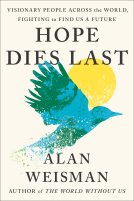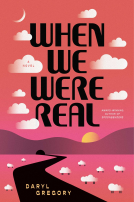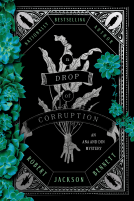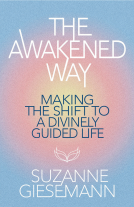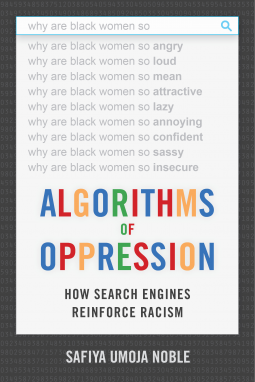
Algorithms of Oppression
How Search Engines Reinforce Racism
by Safiya Umoja Noble
This title was previously available on NetGalley and is now archived.
Send NetGalley books directly to your Kindle or Kindle app
1
To read on a Kindle or Kindle app, please add kindle@netgalley.com as an approved email address to receive files in your Amazon account. Click here for step-by-step instructions.
2
Also find your Kindle email address within your Amazon account, and enter it here.
Pub Date Feb 20 2018 | Archive Date May 30 2018
Talking about this book? Use #AlgorithmsOfOppression #NetGalley. More hashtag tips!
Description
A revealing look at how negative biases against women of color are embedded in search engine results and algorithms
Run a Google search for “Black girls”—what will you find? “Big Booty” and other sexually explicit terms are likely to come up as top search terms. But, if you type in “white girls,” the results are radically different. The suggested porn sites and un-moderated discussions about “why Black women are so sassy” or “why Black women are so angry” presents a disturbing portrait of Black womanhood in modern society.
In Algorithms of Oppression, Safiya Umoja Noble challenges the idea that search engines like Google offer an equal playing field for all forms of ideas, identities, and activities. Data discrimination is a real social problem; Noble argues that the combination of private interests in promoting certain sites, along with the monopoly status of a relatively small number of Internet search engines, leads to a biased set of search algorithms that privilege whiteness and discriminate against people of color, specifically women of color.
Through an analysis of textual and media searches as well as extensive research on paid online advertising, Noble exposes a culture of racism and sexism in the way discoverability is created online. As search engines and their related companies grow in importance—operating as a source for email, a major vehicle for primary and secondary school learning, and beyond—understanding and reversing these disquieting trends and discriminatory practices is of utmost importance.
An original, surprising and, at times, disturbing account of bias on the internet, Algorithms of Oppression contributes to our understanding of how racism is created, maintained, and disseminated in the 21st century.
Advance Praise
“A distressing account of algorithms run amok.”—Kirkus Reviews
“Noble demolishes the popular assumption that Google is a values-free tool with no agenda...She astutely questions the wisdom of turning so much of our data and intellectual capital over to a corporate monopoly…Noble’s study should prompt some soul-searching about our reliance on commercial search engines and about digital social equity.”—STARRED Booklist
“Noble makes a strong case that present technologies and search engines are not just imperfect, but they enact actual harm to people and communities.”—Popmatters.com
“[P]resents convincing evidence of the need for closer scrutiny and regulation of search engine[s]….A thought-provoking, well-researched work….”—Library Journal
Available Editions
| EDITION | Other Format |
| ISBN | 9781479837243 |
| PRICE | $33.00 (USD) |
| PAGES | 256 |
Links
Featured Reviews
 Janette J, Reviewer
Janette J, Reviewer
I’m gonna be honest I don’t read the most mentally stimulating books, as evidenced by scrolling this feed but books like #algorithmsofopression by #safiyaumojanoble reminds me I should.
I was asking my mom a question the other day and my 4 year old niece just yelled at me to just google it. In the age of computers, search engines help us grapple with the world and what’s going on it. It makes sense that we should really delve into and understand how the information we are given impact us and informs our understandings.
Noble really puts into perspective that though we think of google and search engines as a public space searches are in fact biases greatly impacting and further marginalizing women, people of color and disenfranchised communities.
This idea seems pretty common sensical but when Noble really breaks down her argument I first thought man this is how systemic inequalities are ingrained in our society and then came the anger.
The book was pretty accessible to readers who are not in academia. I honestly spent some time googling different things to really analyze the content and information I was being feed
Stay woke! As a woman of color I’m really tired of being on guard defending who I am from so many misrepresentation of my being.
Thanks #netgalley for providing me a copy of this book for my honest review.
Rating:📚📚📚📚/4
#Foodie #the_reading_foodie #laeats #fatty #yummy #alwayseating #bookish #alwaysreading #bibliophile #bookworm #bookslut #bookstagram #booknerd #foodstagram #bookgeek #bookporn #foodporn #tacos #kingtaco #sope #losangeles #opression #google #searchengine #read #reader #book #books #smartypants #readabook #quesadilla #socialcommentary
 Carrie P, Librarian
Carrie P, Librarian
I've been anticipating this book for a LONG time, and it did not disappoint. Safiya Noble has written an outstanding, provocative, piercing analysis of the hidden ways search engines influence what information we see (and don't see). This should be required reading for anyone working in the information professions.

